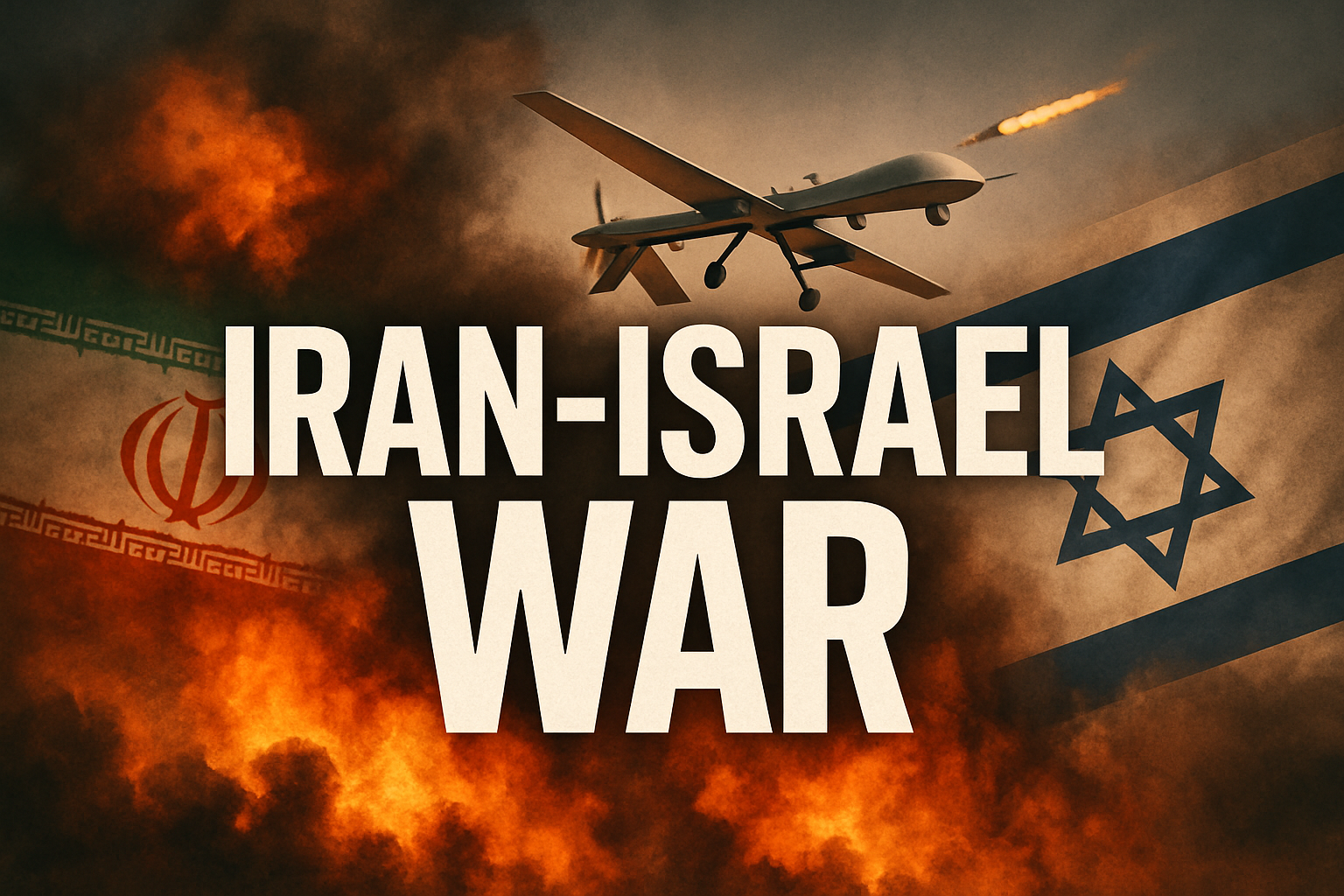Iran vs Israel: The War That Could Reshape the World
A New Frontline: The Iran-Israel Conflict Explained
In what many experts are now calling the most dangerous military escalation of the decade, the war between Iran and Israel has reached a boiling point. This is not just a regional skirmish—it’s a seismic conflict that could redraw political maps, impact global oil prices, and trigger broader warfare involving global superpowers.
But what exactly is happening? How did we get here? And why is the world watching so closely?
Timeline of the Iran-Israel Conflict (2024–2025)
-
October 2023: Israel launched airstrikes deep into Syria, reportedly targeting Iranian military infrastructure.
-
January 2024: A high-ranking IRGC (Islamic Revolutionary Guard Corps) general was killed in a suspected Mossad operation in Iraq.
-
March 2024: Iran responded with missile strikes on Israeli military bases in the Golan Heights.
-
April 2024: Hezbollah (Iran-backed) escalated attacks from southern Lebanon, prompting a full-scale Israeli air campaign in Beirut.
-
May 2024: Cyberattacks crippled Israeli banking and water systems; Israel retaliated by shutting down parts of Iran’s nuclear infrastructure.
-
June 2025: Israel launched a coordinated air and drone strike near Iran’s Natanz nuclear facility, triggering an all-out Iranian declaration of war.
What’s Driving the War?
This conflict is not a simple story of two enemies. It’s a clash of ideologies, regional power, and global alliances:
-
Nuclear Ambitions: Iran’s uranium enrichment has surged to weapons-grade levels. Israel says this is a red line.
-
Proxy Armies: Iran funds and arms Hezbollah, Hamas, and Houthi rebels, creating a ring of fire around Israel.
-
Geopolitical Shifts: The U.S. has signaled a more hands-off approach, while Russia and China are quietly supporting Iran through trade and intelligence.
What’s at Stake for the World?
-
Oil Prices: A war in the Strait of Hormuz could block one-fifth of the world’s oil supply. Prices already spiked 30% in Q2 2025.
-
Tech and Cybersecurity: Cyberwarfare has entered a new era, targeting critical civilian infrastructure like hospitals, banks, and airports.
-
Nuclear Tension: Experts fear that if this escalates further, it could become the first real test of nuclear deterrence in the 21st century.
Voices from the Ground
"We’re not just afraid of bombs. We’re afraid of silence—of not knowing what’s next."
— Tamar Elbaz, Tel Aviv resident
"The war is not just on borders. It’s in our power, our food, our future."
— Reza Mahmoudi, Iranian energy worker in Tehran
Global Response: Who's Taking Sides?
| Country | Position | Action Taken |
|---|---|---|
| USA | Condemned Iran, offered Israel defensive support | Patriot missiles, intel sharing |
| Russia | Silent, alleged behind-the-scenes support to Iran | Arms shipments via Syria |
| China | Called for "restraint" | Continued oil trade with Iran |
| Saudi Arabia | Publicly neutral | Secret coordination with Israel reported |
| EU | Divided | France supports sanctions, Germany calls for de-escalation |
Is This the Start of WWIII?
That question is trending across social platforms—and not without reason. Iran and Israel are both military powerhouses in a volatile region. The conflict is already affecting global trade, energy markets, and regional diplomacy.
According to defense analysts, if Israel strikes Iran’s nuclear reactors directly, or if Iran blocks the Strait of Hormuz, NATO could be drawn in. At that point, escalation becomes not just possible—but inevitable.
The Bottom Line: Why You Should Care
This war isn’t just about ancient enmities or regional politics. It’s about energy security, technology, religion, and the balance of global power.
Every time a missile hits, the world feels the shockwave.



